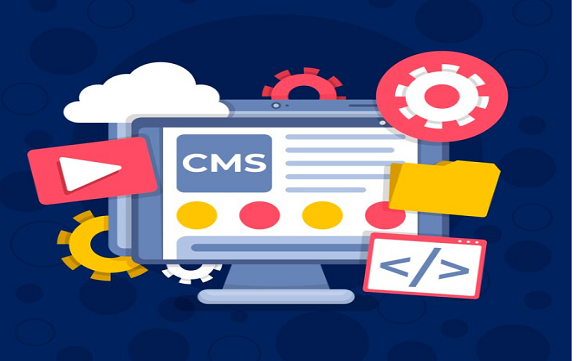
ERP Implementation for a Leading Short Line Railroad Company in the US Enhanced Data Accuracy, Improved Operational Efficiency, and Delivered Significant Cost Savings.
About the Customer
The customer is a prominent American short line railroad holding company that owns and maintains an interest in many railroads. They operate across North America and owns or leases over 100 freight railroads, employing 4,000+ employees and serving 2,000+ customers over a vast network of 13,000 track miles.
Key Business Outcomes
Enhanced freight safety & audit tracking
Improved data accuracy & operational efficiency
Delivered significant cost savings
Customer Business Challenge
The customer’s freight operations were hindered by their legacy systems and outdated processes that lacked real-time data visibility and operational efficiency.
Some of their key challenges were:
- Lack of data synchronization of freight information across regions
- Absence of derail data management and audit tracking mechanisms
- Inefficient implementation of the derail information systems
- Improper monitoring and verification of engine checks and maintenance
- Frequent incidents of missing data entry by mechanics, leading to derailments involving costly repairs
- Inefficient automation of inventory management system and safety audit systems
- Ineffective defect management system resulting in operational risks and increased costs
Solution Delivered by Adroitent
Adroitent partnered with the customer to modernize their freight operations by implementing an end-to-end ERP solution integrated with Microsoft Dynamics 365 (MD365), Power Apps, and Power Automate.
Main components of the solution:
- ERP implementation: A robust ERP framework was designed and implemented specifically for freight data management, derail application completion, and audit tracking.
- Created workflows with Power Apps & Power Automate: Automated workflows were created to conduct daily route and region-wise safety audits to ensure various derailment incidents were minimized.
- Defect & Repair Tracking: A defect management solution was enabled via Power Apps, ensuring real-time visibility of engine checks, missed updates, and defects leading to faster repairs and ensured cost savings.
An Overview of the Project Activities
1. End-to-End ERP implementation using Microsoft Dynamics 365 (MD365): Adroitent’s team undertook a full-cycle ERP implementation, starting from business process analysis to system deployment.
- Requirement gathering and gap analysis.
- Customization of modules to meet the unique operational needs of freight and railroad management.
- Configuration of business workflows in alignment with the customer’s processes ensuring data security, compliance, and operational
2. Feature-wise testing and validation of business workflows: A structured testing strategy was adopted by the Quality assurance team to ensure robust functionality.
- Conducted detailed feature-wise testing of ERP modules.
- Validated key business workflows like freight management, derail data capture management, and engine maintenance tracking.
- Conducted integration testing to ensure smooth interoperability with other business systems.
- Performed regression testing and user acceptance testing (UAT) prior to production rollout.
3. Comprehensive data integration across regions: Teams handled the data silos across the customer’s multiple regions.
- Data migration and cleansing from legacy systems.
- Synchronized real-time data of freight information across different operational regions.
- Standardized data formats to improve data accuracy and visibility and ensured smooth data flow between the ERP system and external applications.
4. Power automate implementation for freight safety audits: To ensure daily freight safety checks and compliance, Adroitent leveraged Power Automate.
- Designed and deployed automated workflows using Microsoft Power Automate.
- Enabled automatic audit tracking for daily freight inspections and derail safety checks.
- Integrated audit data with the ERP system for real-time visibility and correction
5. Derail information system implementation & integration: The team successfully developed and implemented a derail data management system within the ERP framework.
- Enabled real-time tracking and logging of derail events.
- Integrated the derail information system with freight operations, audit workflows, and maintenance logs.
- Provided data-driven insights to reduce derail risks and improve freight safety.
6. Post-implementation support and optimization: The Adroitent team was involved with the post-implementation support and optimization to ensure the sustainability and continuous improvement of the solution.
- Enabled support during the initial go-live phase.
- Performed system monitoring, incident resolution, and performance tuning.
- Conducted periodic assessments and recommendations for functional and technical enhancements.
- Ensured knowledge transfer and conducted user training sessions.
7. Agile implementation approach: The project followed the Agile delivery model to ensure flexibility and faster delivery.
- Implemented two-week sprint cycles to drive continuous progress.
- Enabled monthly working model releases with incremental delivery of features.
- Conducted regular stakeholder reviews and feedback loops that ensured alignment with customer expectations.
- Adopted scrum methodology to promote cross-functional collaboration and faster issue resolution.
Technology Stack Leveraged
The technology stack included Microsoft Dynamics 365 ERP, Power Apps, Power Automate, Azure, Jira, Azure DevOps, and Visual Studio.
- Microsoft Dynamics 365 ERP – Core ERP platform for operational workflows
- Power Apps & Power Automate – Cloud flow Process automation
- Azure Cloud Platform – Infrastructure hosting, scalability, and security
- Jira – Agile project management and sprint tracking
- Azure DevOps Visual Studio – Development environment along with Source control, DevOps CI/CD pipelines, and release management
Business Outcomes
- Uniform sync of freight data across regions: The ERP solution enabled uniform synchronization of freight data for the customer across different regions, reducing communication gaps and operational delays enabling significant cost savings.
- Enhanced freight safety & audit tracking: Daily audits and digital tracking of derail information helped the customer to proactively manage risks and avoid derailment incidents.
- Improved data accuracy & operational efficiency: Mechanics were empowered to log missed data in real-time, reducing operational mishaps and minimizing repair costs.
- Delivered significant cost savings: With real-time defect tracking and audit implementation, the customer successfully avoided unnecessary repairs and costs associated with misinformation and operational risks, thus saving significant costs.


